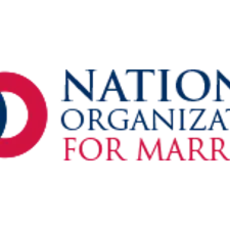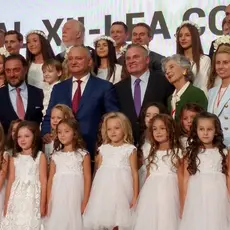Next week, Slovakia will hold a referendum against same-sex marriage, and anti-LGBT groups from around the globe are getting into the game to support it.
Although Slovakia has already banned same-sex marriage in its constitution, the referendum would reinforce and expand the prohibition, asking voters, according to the Associated Press, “whether they agree that a marriage can be called only a union between a man and a woman, same-sex partners can't adopt children, and that children wouldn't have to attend school classes on sex education if their parents don't agree with them.”
Last year, a European representative of the U.S. group Alliance Defending Freedom filed a brief in the country’s constitutional court in favor of holding the referendum. ADF also supported a provision in that would have banned domestic partnerships for gay and lesbian couples, but the court rejected including that provision in the referendum.
Yesterday, CitizenGo, a Madrid-based group whose board of directors includes National Organization for Marriage President Brian Brown, circulated a petition to its American email subscribers supporting Slovakia’s marriage referendum. The email sent to American supporters was signed by Josh Craddock, the head of Personhood USA’s international and United Nations work, on behalf of CitizenGo.
The petition, which has already gathered more than 45,000 signatures, encourages Slovak citizens to vote “yes” on the referendum in the face of what it calls “an aggressive foreign media campaign” against it:
The Slovak referendum is under attack from an aggressive foreign media campaign against the initiative. We cannot leave Slovak citizens alone in the face of these international pressures against marriage and the family.
By signing this petition, you will show your solidarity and support for marriage and family. Your signature will encourage Slovakia to vote in favor of these important values.
The November issue of the newsletter of the World Congress of Families, an Illinois-based group that connects international anti-LGBT and anti-choice activists, featured a plea from Anton Chromik, a leader the group spearheading the referendum effort in Slovakia, for support from international groups.
The Cato Institute’s Dalibor Rohac wrote in the Times last month that Chromik is warning that LGBT people don’t want “rights,” but to “shut the mouths of other people,” which he says could lead to “dictatorships” or “mass murders”:
Anton Chromik, one of the leaders of the Alliance for Family, claims that “homosexuals are not asking just for ‘rights,’ but want to shut the mouths of other people. They will be making decisions over other people’s lives, careers, and that has always in history resulted in dictatorships and sometimes even in mass murders.”
This rhetoric is reminiscent of the warnings peddled American anti-LGBT activists; as Political Research Associates has noted, the frame of LGBT people as the real oppressors is one that U.S. groups have been increasingly pushing in their work overseas.
Rohac also noted that the anti-LGBT referendum is tied up with Slovakia’s economic troubles and with its relationship with Russia, whose President Vladimir Putin has taken advantage of anti-LGBT sentiment to strengthen support for Russia in Eastern European and Central Asia:
For the government of Prime Minister Fico, the controversy is a welcome — though temporary — distraction from some very real problems facing Slovakia. While its transition from Communism was a success, the country is still plagued by rampant corruption, chronic unemployment — exceeding 30 percent in some regions — and by the intergenerational poverty of the sizeable Roma population.
The country has also seen a geopolitical shift following Russia’s invasion of Ukraine, with Mr. Fico becoming one of the Kremlin’s leading apologists. Unsurprisingly, Slovakia’s anti-gay activists have a soft spot for Vladimir Putin, too. Former Prime Minister Jan Carnogursky, a former Catholic dissident and an outspoken supporter of the referendum, noted recently that “in Russia, one would not even have to campaign for this — over there, the protection of traditional Christian values is an integral part of government policy” and warned against the “gender ideology” exported from the United States.






